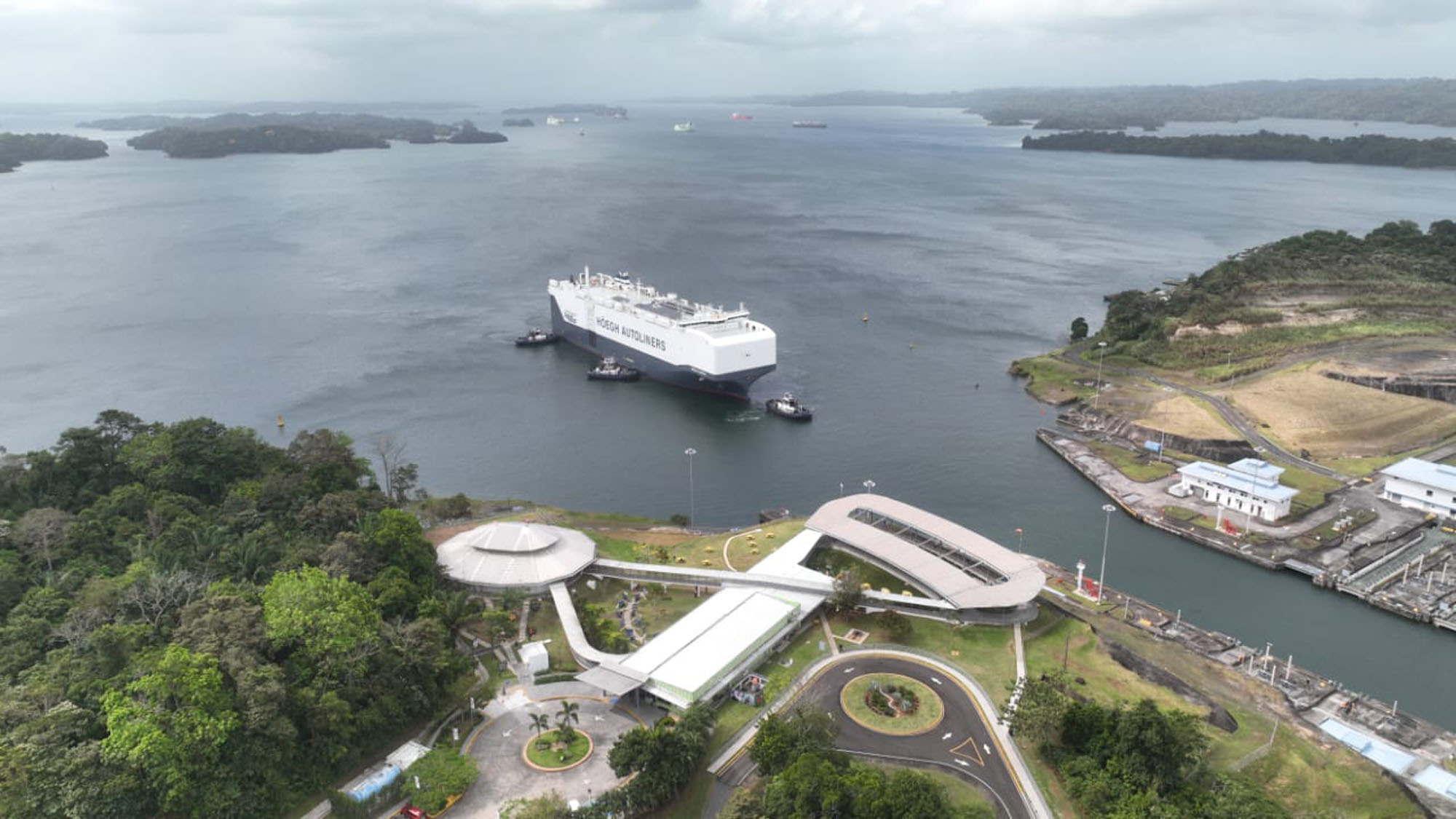- INCREASES EFFICIENCY AND AVAILABILITY OF SLOTS
- OFFERS MORE FLEXIBILITY TO CUSTOMERS AND SIMPLIFIES PROCESS
- CAPACITY INVESTMENTS OPEN UP MORE SLOTS FOR ALL TYPES OF SHIPS
PANAMA CITY, Panama, January 14, 2008 – In a constant effort to provide the best customer service and increase the capacity of one of the world’s most widely used waterways, the Panama Canal Authority (ACP) announced today that beginning February 1, 2008, it will implement a new and improved reservation system to increase its current system’s efficiency, availability of slots and to reflect the true value of the Canal’s service to its customers. These adjustments will offer customers more flexibility and will simplify charges. The Panama Canal transit reservation system is a premium optional service that provides added value to those customers that wish to secure a transit for a specific date. Since October, consultations have been conducted by the ACP for this initiative through the Panama Maritime Chamber, a body comprised of shipping agents representing the Canal’s customers.
The following are the changes that will be implemented:
- The ACP will offer two additional booking slots for supers (vessels 91′ beam or over), for reservations made during the first period (365 to 22 days prior to the requested transit date).
- One slot will be offered prior to the opening of the first period and out of the ACP customer ranking system in order to allow any interested customer a daily opportunity for a booking slot.
- The auctioned slot will continue to be offered in addition to the above-mentioned slots for a total of 27 slots per day.
- Up to three slots will be available to vessels under 300′ in length and without transit restrictions, on a daily basis.
- Booking fees will be fixed. The new system will simplify how ships are charged for booking a transit through the Canal by establishing a fixed fee based on the vessel´s size or dimensions.
- Passenger vessels will be allowed to book a transit between 547 and 366 days before the transit date. This special period was established upon requests from the passenger cruise industry.
- Changes were made to the late arrival fees. Vessels booked for transit that fail to arrive before their required arrival time have the option of transiting on the day of their booking. The amount of the fee to be paid will be determined by the vessel’s actual arrival time. This new option benefits the customer since, this used to be a flat fee of 200 percent of the booking fee.
- Reservations secured prior to the implementation date of the changes will be honored at the rate that is in effect at the time the reservation is made.
“The ACP’s world-class workforce is fully committed to its customers as such, we are constantly improving efficiency to increase capacity and optimize the waterway’s resources to benefit our customers,” said Rodolfo Sabonge, ACP Vice President of Market Research and Analysis. “As part of our Permanent Modernization Program, this new and improved reservation system will allow our customers more flexibility by securing additional transit slots with a guaranteed passage date, thus increasing the reliability of the services provided by the waterway.”
The above changes are geared to address customer requests and fulfill their needs for increased availability of slots. Booked vessels (those ships holding reservations) account for more than 60 percent of oceangoing transits. Use of the booking system, even though optional, is an increasing trend at the Canal – usage of the system increased almost 2 percent in fiscal year 2007 to 95 percent. Also, it has proven to be a reliable service, as demonstrated by a consistent record in Canal Waters Time (CWT), the average time it takes a vessel to navigate the Canal, including waiting time for passage. This past fiscal year, CWT for booked vessels remained steady at 17 hours.
Containerized cargo has also grown by more than 100 percent since 2000. Today, it is this segment that uses the booking system the most. More than 90 percent of container vessels that transit the Canal use the booking option and therefore it is imperative for the Canal to offer a new and improved reservation system.
Started in 2000, the Canal’s Permanent Modernization Program has several projects under development such as: the deepening of Gatun Lake and the Atlantic and Pacific entrances, the construction of a second tie-up station and the further widening and straightening of the Gaillard Cut. In January, the ACP began operation of its first tie-up station, which increased Canal capacity by another Panamax vessel per day. This enabled the Canal to offer additional booking slots, including the slot that is now being auctioned daily.
About the Panama Canal Authority
The Panama Canal Authority (ACP) is the autonomous agency of the Government of Panama in charge of managing, operating and maintaining the Panama Canal. The operation of the ACP is based on its organic law and the regulations approved by its Board of Directors. For more information, please refer to the ACP’s Web site: http://www.pancanal.com/.
The Authority’s responsibility to the Panamanian people is paramount. The Canal belongs to the people and benefits from the Canal should accrue to as many Panamanians as possible. The Authority will plan its future so that it will continually contribute to the economic development and welfare of the citizens of Panama.




